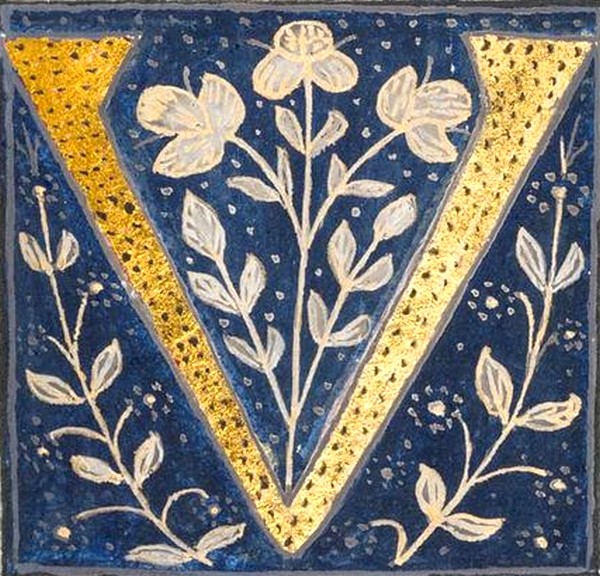
Art Song speaks about life. If you read interviews we read interviews with performers you'll notice that's a usual statement. That's why Art Song is a current genre and that is why the letter V of the Liederabend's alphabet is for vida, life.
Art Song speaks about life because poetry does, of course. The words used by poets four hundred years ago are different from those used one hundred years ago or those that they use today, but their interests remain essentially the same at any time. From time to time, someone tells me that the different language becomes a wall that keeps Art Song too distant, with nothing to do with our time. When possible, I like to spend some time with that person to find a chink in this wall so as past and present can meet. I can see that without this connection it's difficult to capture people's interest unless one pays attention only to music, which is also an alternative.
Art Song speaks about life (the third and last time I start a paragraph with this phrase), but not only of its most sublime and transcendent aspects. Where do we come from? What are we? Where are we going? That's fine, but there are other things, not so elevated, more practical, that also attracted poets and composers' attention, later singers and pianists' attention and finally, in this corner of the Internet, my attention. Today, I would like to focus on this everyday matters.
For example, one of the most repeated questions nowadays and a hundred years ago: what do we eat today? Thank God Leonard Bernstein, in his song cycle La bonne cuisine, suggests four recipes, all of which from a French recipe book published in 1873. Today, we're eating Civet à tout vitesse. And what about drinking? Sometimes, we have too much to drink, even in songs; At first, it's just a toast for joy, then some stories about kings and their fleas arrive and finally, the bawdy songs. All of them very classy, of course. Talking about going out at night, we can't miss two charming, light songs by two composers who weren't usually light: Robert Schumann and Peter Warlock.
Children are welcome to Art Song, thanks, for instance, to Modest Mussorgsky and Bernstein. The naughty boy that gets a time out or theten-year-old girl who is fed up with adults are just two examples from two cycles that I really recommend to you: The Nursery and I hate music. And what about the children in the theater, excited before the curtain is raised?
If you go through the web you will find other songs that speak of everyday life. Today I'm talking about one more, Schlechtes Wetter, one of the few songs that Richard Strauss composed from a poem by Heinrich Heine. He composed it in 1918, when he came back to the Lied after a long silence, more than ten years; Schlechtes Wetter is the last of the Fünf kleine Lieder (Five small songs), Op. 69, published immediately after two collections we know: Opus 67, which includes Ophelia's songs, and Opus 68, the Brentano Lieder.
The first verses tell us about a storm: wind, rain and snow. How many songs begin like this and then tell us about the poetic speaker's anguish? Not in this case; the narrator is safe at home, watching the storm through the window. Outside, there's only an old woman with a light that totters. When Heine says "I think that..." it seems that he's telling a sad story, like that of La vagabonde, but not at all; he tells a prosaic story. The old woman went out to buy the ingredients to make a cake for her daughter, a young woman lounged in her armchair waiting for the mother to come back. Heine tells us about her golden curls and her sweet face; Maybe he was thinking about some special spoiled daughter?
Strauss composed a very descriptive Lied: we hear the storm, the curiosity of the observer (we can almost see how he stretches his neck to watch), and feel the smell of the cake (do cakes smell of waltzes?). I'm not sure if I like this song; sometimes I find it absurd, sometimes I love its irony. Anyway, Strauss was really inspired when he composed it. We're listening to Schlechtes Wetter performed by Camilla Tilling and Paul Ravinius; let me know what you think!
Das ist ein schlechtes Wetter,
Es regnet und stürmt und schneit;
Ich sitze am Fenster und schaue
Hinaus in die Dunkelheit.
Da schimmert ein einsames Lichtchen,
Das wandelt langsam fort;
Ein Mütterchen mit dem Laternchen
Wankt über die Straße dort.
Ich glaube, Mehl und Eier
Und Butter kaufte sie ein;
Sie will einen Kuchen backen
Fürs große Töchterlein.
Die liegt zu Hause im Lehnstuhl,
Und blinzelt schläfrig ins Licht;
Die goldenen Locken wallen
Über das süße Gesicht.
it's raining and storming and snowing;
I sit at the window and gaze
out into the darkness.
There, a lonely light is gleaming,
and it moves slowly onward;
a little old woman with a lantern
totters across the street there.
Flour and eggs, I think,
and butter - she has bought;
she plans to bake a cake
for her grown-up darling daughter.
She is lying at home in an armchair
and she blinks sleepily in the light;
her golden curls straying
over her sweet face.
(translation by Emily Ezust)














Comments powered by CComment